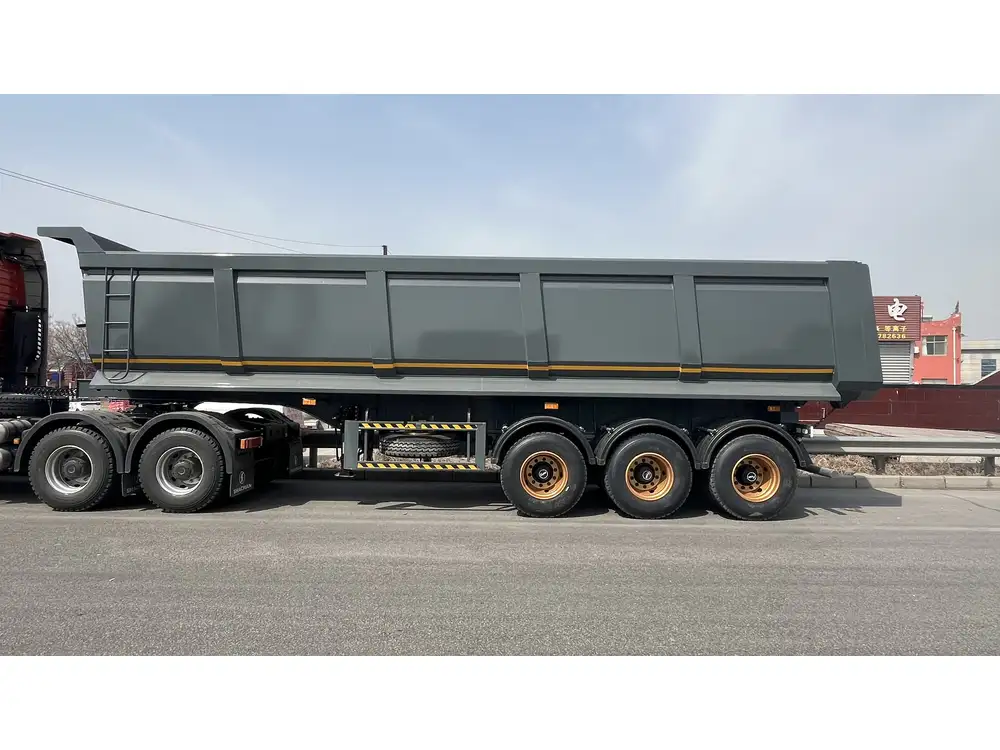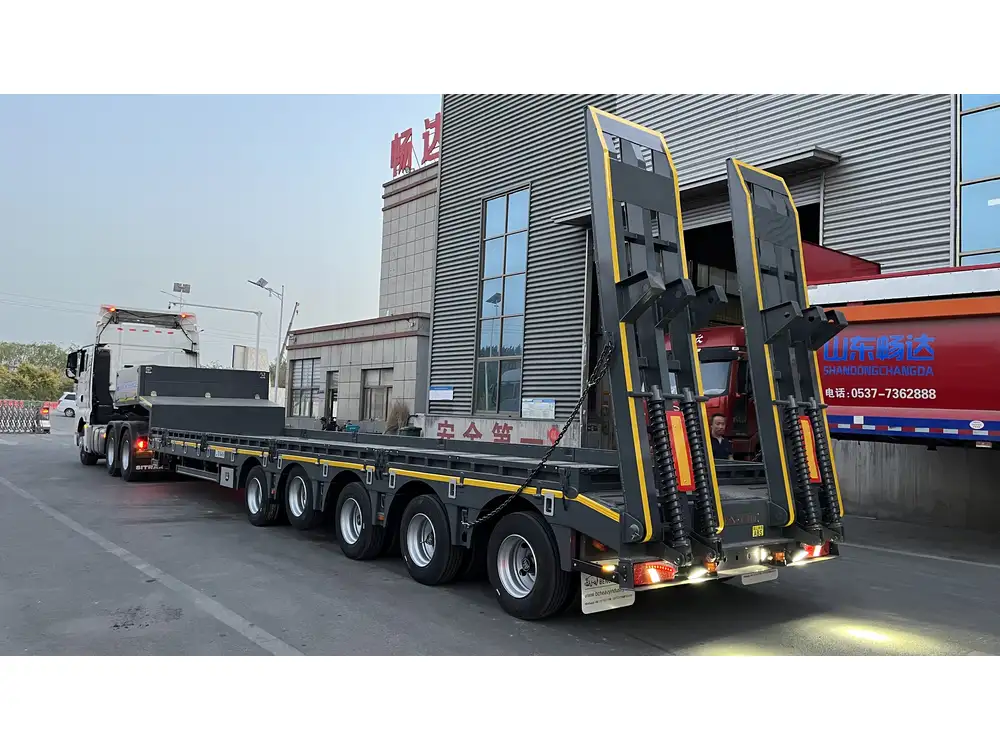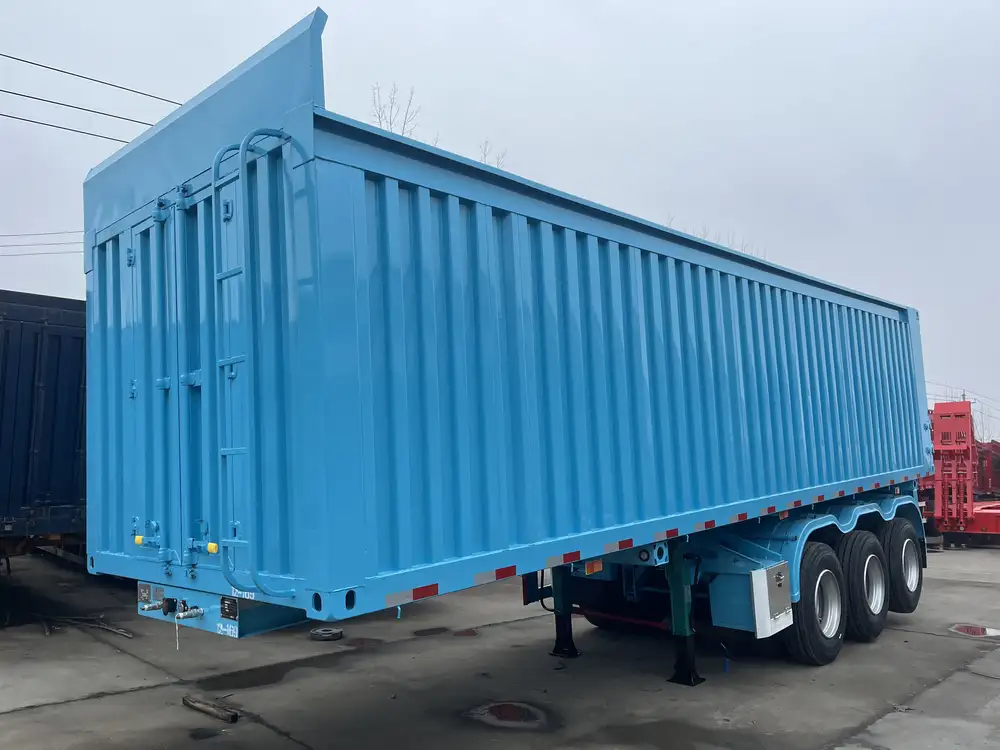When it comes to transporting goods, the logistics of the process can often be daunting. If you’ve found yourself pondering the question, “Can I rent a flatbed trailer?”, you’re not alone. Many users seek to understand the ins and outs of renting a flatbed trailer, whether for personal projects, business needs, or specialized transportation. This guide will provide a thorough examination of flatbed trailer rentals, addressing various aspects, including types, requirements, pricing, and factors influencing decisions.
Understanding Flatbed Trailers
What is a Flatbed Trailer?
A flatbed trailer is a type of trailer that is characterized by its flat surface and lacks sides or a roof. These trailers are designed to hold loads of various shapes and sizes, making them exceptionally versatile for transporting goods. Commonly used in construction, agriculture, and freight transportation, flatbed trailers come in various lengths and weight capacities.

Types of Flatbed Trailers
Flatbed trailers are not a one-size-fits-all solution. Understanding the different types can help in choosing the right one according to your needs:
| Type | Description | Best For |
|---|---|---|
| Standard Flatbed | The classic flatbed model with a flat, open design. | General freight, construction materials |
| Drop Deck | Features a lower deck area to accommodate taller loads while maintaining compliance with height regulations. | Tall equipment, machinery |
| Extendable Flatbed | Designed to adjust its length to accommodate oversized loads. | Long pipes, large machinery |
| Lowboy Trailer | Primarily built for hauling heavy equipment such as tractors and excavators, with a lowered deck for stability. | Heavy equipment transport |
| Gooseneck Flatbed | Utilizes a hitch that connects to the truck bed, allowing for increased stability and maneuverability. | Moving larger loads with a pickup truck |
Reasons to Rent a Flatbed Trailer
Before diving into the rental process, it’s critical to understand why renting a flatbed trailer can be advantageous:
- Cost-Effectiveness: Renting avoids the high costs associated with purchasing and maintaining a trailer.
- Flexibility: Renters can choose the trailer type based on specific needs, whether it be for a one-time project or seasonal purchases.
- No Maintenance Headaches: Rental companies typically handle maintenance and repairs, sparing you from any associated burdens.
- Access to Latest Models: Renting often provides access to newer trailers equipped with advanced technology and features.
Can I Rent a Flatbed Trailer? The Renting Process

Steps to Rent a Flatbed Trailer
Navigating the rental process can seem complex, but breaking it down into manageable steps simplifies the experience.
Determine Your Needs:
- Assess the type and volume of goods you intend to transport.
- Consider the distance, duration of use, and specific trailer requirements.
Research Rental Companies:
- Look for local and national trailer rental companies offering flatbed options.
- Read reviews and ask for suggestions to ensure reliability.
Compare Pricing:
- Gather quotes from multiple rental companies.
- Examine the terms to understand what’s included in the price (insurance, mileage, etc.).
Understand Rental Terms:
- Pay attention to maintenance responsibilities, rental durations, and deposit requirements.
- Ask about any potential fees for damage or late returns.
Inspect the Trailer:
- Before finalizing, inspect the trailer for any existing damage and document it.
- Ensure it meets your specifications in terms of size and weight capacity.
Finalize the Rental Agreement:
- Complete the necessary paperwork and provide identification and payment.
- Ensure you retain a copy of the rental agreement for your records.
Key Considerations
Renting a flatbed trailer entails more than just picking one from a catalog. Key considerations include:
- Weight Limits: Each trailer has a specified weight limit. Exceeding this limit can lead to fines or safety issues.
- Trailer Size: Requirements can change based on the load size. A larger or longer trailer may be necessary for specific tasks.
- Hitch Compatibility: Ensure your vehicle is compatible with the rental trailer’s hitch system, as flatbed trailers may use different couplings.
Insurance and Liability
Before driving off with your rental trailer, you must understand insurance and liability implications:
- Rental Insurance: Many companies offer rental insurance. Evaluate whether it provides adequate coverage for your needs.
- Personal Liability: Usually, renters are responsible for any damage incurred while the trailer is in their possession.
- Third-Party Insurance: Check if your automobile insurance policy covers rental trailers, which could lead to savings on rental insurance.

Pricing Models for Flatbed Trailer Rentals
Understanding the cost structure of flatbed trailer rentals aids in proper budgeting. Here’s what you might encounter:
Rental Rates
Flatbed trailer rental costs can vary based on several factors, including the type of trailer and rental duration:
| Rental Duration | Average Daily Rate | Weekly Rate | Monthly Rate |
|---|---|---|---|
| Daily | $40 – $150 | N/A | N/A |
| Weekly | N/A | $250 – $800 | N/A |
| Monthly | N/A | N/A | $800 – $3000 |
Hidden Costs
Always be wary of additional fees that may not be apparent at first glance:
- Booking Fees: A charge that may be applied at the time of reservation.
- Mileage Charges: Charges may apply if you exceed a set mileage limit.
- Fuel Costs: Return the trailer with the same fuel level to avoid additional charges.
- Cleaning Fees: Renters might be required to return trailers in a clean state, or risk a cleaning fee.

Conclusion
Renting a flatbed trailer can be a straightforward solution for your transportation needs, but it requires careful consideration and planning. By understanding what type of trailer you need, comparing rental companies, and grasping the costs associated with renting, you can ensure that your rental experience is seamless and devoid of unpleasant surprises.
In addressing the essential question, “Can I rent a flatbed trailer?”, the answer resoundingly is yes—provided that you do your due diligence. Whether you’re moving equipment, transporting freight, or facilitating a large-scale project, flatbed trailers are a formidable ally in your logistical endeavors.
Make informed decisions, respect weight limits, prioritize safety, and, most importantly, communicate effectively with your rental provider to ensure that all your needs are met. With this comprehensive guide at your disposal, you are now better equipped to navigate the complexities of flatbed trailer rentals with confidence and clarity. Happy hauling!



